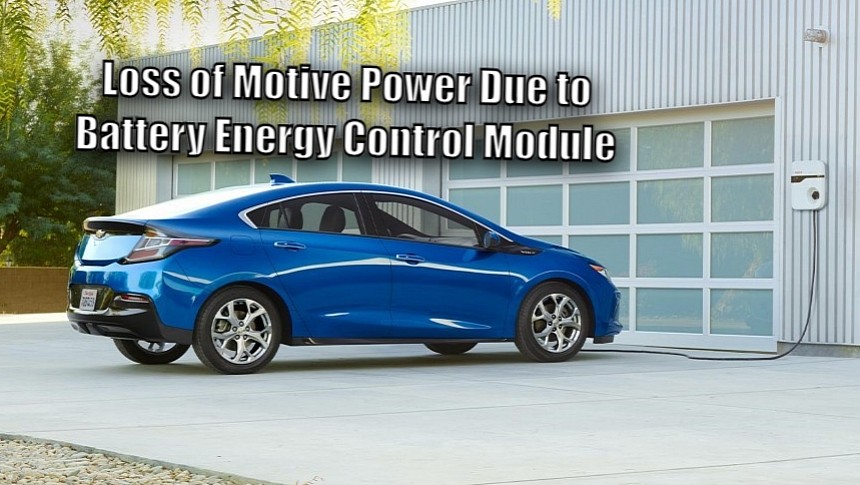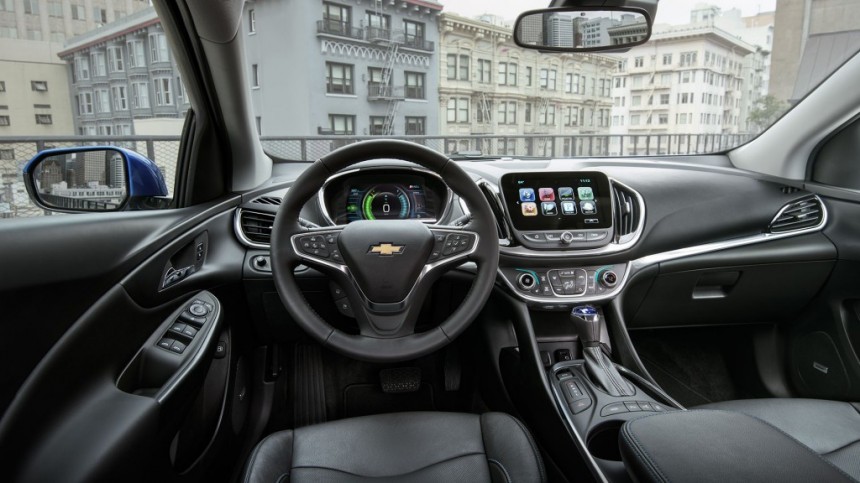Remember the good ol' Chevrolet Volt? A trailblazer when it came out, GM's range-extender PHEV is also remembered by the National Highway Traffic Safety Administration. More specifically, the Office of Defects Investigation within the NHTSA is aware of no fewer than 61 reports alleging BECM failure.
According to documents filed with the federal agency, said battery energy control module failures led to a reduced power state, a no-start condition, and stalling. Obviously enough, a sudden loss of motive power while driving increases the risk of a crash.
Published on the NHTSA's website in June 2021, complaint number 11419273 describes a loss of propulsion on start-up. Rather surprisingly, the condition went away after a few days at the dealer, with said dealer unable to replicate the condition.
11552553 is the most recent of complaints filed with the National Highway Traffic Safety Administration. The owner claims that their 2017 model year Chevrolet Volt would show a warning message on the instrument panel while driving at various speeds, alerting the owner of reduced power. After coming to a halt, the vehicle wouldn't start up again for hours.
The Office of Defects Investigation opened preliminary evaluation PE23022 into the 2016 through 2019 Chevrolet Volt due to the aforementioned conditions, which General Motors addressed via technical service bulletin 18-NA-261. Published in March 2022, said bulletin confirmed an internal issue within the Volt's battery energy control module.
The corrective action comes in the form of a replacement module. No big deal, right? The problem is, General Motors should have addressed this concern via a safety recall instead of a technical service bulletin. The NHTSA claims that GM and ODI held talks over this concern on several occasions, but alas, a recall has yet to be issued.
It's not known how much time it will take for the NHTSA to reach a verdict. Also, it's not clear whether the replacement battery energy control module differs in any way from the original unit. In the meantime, 2016 to 2019 Chevrolet Volt owners may want to get in touch with their preferred dealers for the replacement battery energy control module.
Offered between the 2011 and 2019 model years over two generations, the Volt was also sold in Europe as the Opel Ampera and Vauxhall Ampera. The short-lived Holden Volt deserves a shout-out as well, despite selling fewer than 250 units by April 2015.
A five-door liftback twinned with the Cadillac ELR, the Chevrolet Volt was manufactured at the Detroit-Hamtramck Assembly Plant. Currently known as Factory Zero, this facility is GM's first dedicated electric vehicle assembly plant. At press time, it serves as the home of the GMC Hummer EV, Chevrolet Silverado EV, and the Cruise Origin.
An exceptionally frugal machine that combined the best of both worlds, the Volt is dearly missed nowadays. Also sold as the Buick Velite 5 in China between 2017 and 2019, the Volt doesn't have a direct successor in GM's lineup. With the Detroit-based manufacturer being so preoccupied with battery-electric vehicles, a range-extender PHEV wouldn't make much sense for GM in this day and age.
Published on the NHTSA's website in June 2021, complaint number 11419273 describes a loss of propulsion on start-up. Rather surprisingly, the condition went away after a few days at the dealer, with said dealer unable to replicate the condition.
11552553 is the most recent of complaints filed with the National Highway Traffic Safety Administration. The owner claims that their 2017 model year Chevrolet Volt would show a warning message on the instrument panel while driving at various speeds, alerting the owner of reduced power. After coming to a halt, the vehicle wouldn't start up again for hours.
The Office of Defects Investigation opened preliminary evaluation PE23022 into the 2016 through 2019 Chevrolet Volt due to the aforementioned conditions, which General Motors addressed via technical service bulletin 18-NA-261. Published in March 2022, said bulletin confirmed an internal issue within the Volt's battery energy control module.
It's not known how much time it will take for the NHTSA to reach a verdict. Also, it's not clear whether the replacement battery energy control module differs in any way from the original unit. In the meantime, 2016 to 2019 Chevrolet Volt owners may want to get in touch with their preferred dealers for the replacement battery energy control module.
Offered between the 2011 and 2019 model years over two generations, the Volt was also sold in Europe as the Opel Ampera and Vauxhall Ampera. The short-lived Holden Volt deserves a shout-out as well, despite selling fewer than 250 units by April 2015.
A five-door liftback twinned with the Cadillac ELR, the Chevrolet Volt was manufactured at the Detroit-Hamtramck Assembly Plant. Currently known as Factory Zero, this facility is GM's first dedicated electric vehicle assembly plant. At press time, it serves as the home of the GMC Hummer EV, Chevrolet Silverado EV, and the Cruise Origin.
An exceptionally frugal machine that combined the best of both worlds, the Volt is dearly missed nowadays. Also sold as the Buick Velite 5 in China between 2017 and 2019, the Volt doesn't have a direct successor in GM's lineup. With the Detroit-based manufacturer being so preoccupied with battery-electric vehicles, a range-extender PHEV wouldn't make much sense for GM in this day and age.






















